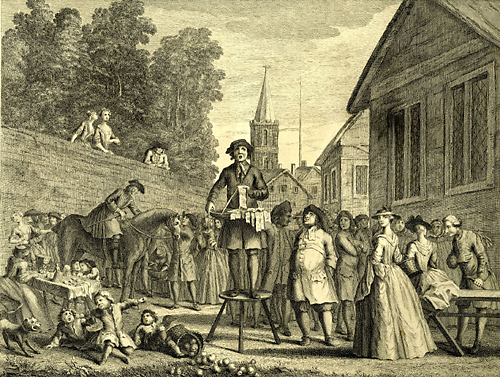The World of Books
On January 20, 1947, The Times of London carried a short report:
“NEW YORK. At 10.15 a.m. yesterday Mayor O’Dwyer, of New York, received a telegram from Mr John McCann, Lord Mayor of Dublin, which read as follows: ‘Poet Eoghan Roe Ward dying. Bananas may save life. Is it possible send some by air?’ Five hours later two hands of bananas were on their way to Rineanna airport – bought in New York and sent to La Guardia field in a police car in time to catch a Pan-American World Airways aeroplane. But prompt as Mr O’Dwyer was, the American overseas airline, though he did not know it, was prompter still. Already at 11 am, responding to an appeal from its Shannon office, it had dispatched four bunches of bananas to Éire.”
When I first read this paragraph, I was intrigued. Fairly familiar with the poets of the 40s and 50s of the last century, I had never heard of Eoghan Roe Ward. Though at times it seems that every second person in Ireland is a poet, I wondered who he was.
Short items in American and Irish papers filled out the story. It was reported that when the bananas arrived his doctors at Sir Patrick Dun’s Hospital said that Ward was too ill to eat them. He passed away two days later. His death certificate says he died of a pancreatic cyst, a quickly fatal condition.
Back at the end of December a public appeal had been made on his behalf: “A number of his friends feel that this man, whose personality and whose ballads enlivened many friends here and in England, deserves the means to comfort him and, as they hope, to survive.”
Donations were to be send into the Grafton Street address of the Writers’, Actors’, Artistes’ and Musicians’ Association (the much derided WAAMA of Myles na Gopaleen’s satire).
The poet, whose real name was Patrick O’Connell, left a young wife and a small family. Though they lived out in Dun Laoghaire he was buried from St Andrew’s Church in Westland Row and laid to rest in Glasnevin.
He had been born in Donegal in the spring of 1916. His pen name ‘Eoghan Roe Ward’ was adopted from that of Eoghan Ruadh Mac an Bhaird (d. 1630), a poet descended from the hereditary poets of the O’Donnells, chiefs of Tír Connail, who was famous for his laments on the passing of Red Hugh O’Donnell, famously translated by Mangan.
Ward was described on his death certificate as a ‘journalist’ – but that at times can be a very loose term. In a fragmentary manuscript of an autobiography, scribbled out in pencil in a school copy book in his last days, he describes how left home at a very early age and took to the roads.
This wandering life he followed in Ireland and England until he married and settled down. He travelled with a donkey and cart, composing ballads and poems as he went along, which he had printed by local jobbing printers to sell on market days. He was nick-named “the last of the wandering bards”.
Influential
A few of his ballads were reprinted in ballad books of the 1960s, but do not seem to have survived as songs. But sung at fairs and in pubs they were often in praise of the then militant IRA and were not much favoured by the authorities.
One of his influential friends, Prof. Roger McHugh of UCD, managed to save a very few items, later presenting them to the Manuscripts Department of the National Library, among them some printed song sheets (Ms 31,755).
Reading about Eoghan Roe Ward one is reminded of Padraic Ó Conaire and his little black donkey, of Michal “Zozimus” Moran, Yeats’ “last of the gleemen”, and of the those ragged itinerant singers one sees in the pictures of Jack. B. Yeats, ballad sheets in hand, proud and indifferent to the praise of the crowd.
Though Eoghan Roe Ward was the sort of poet who get little academic notice, as “the last of the wandering bards”, he was in a way a figure from a long, long tradition, and deserves to be remembered, even at this late date.



